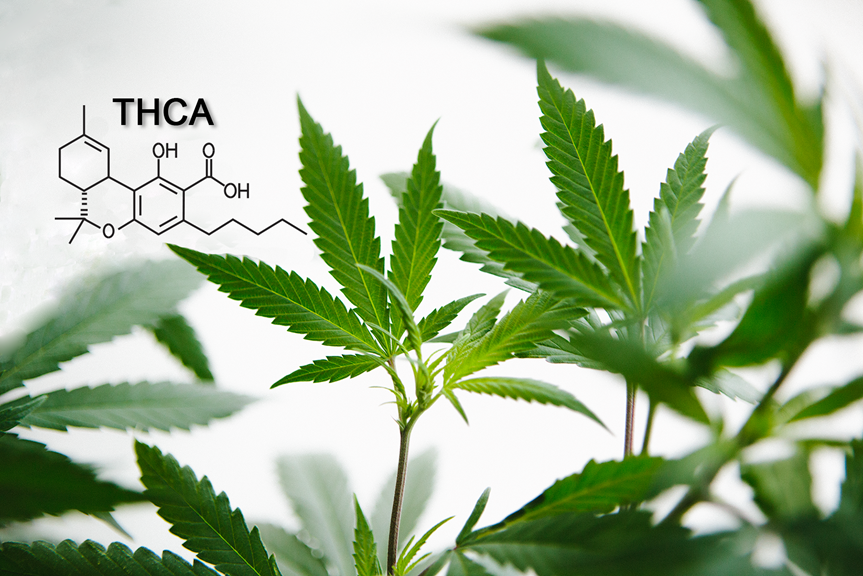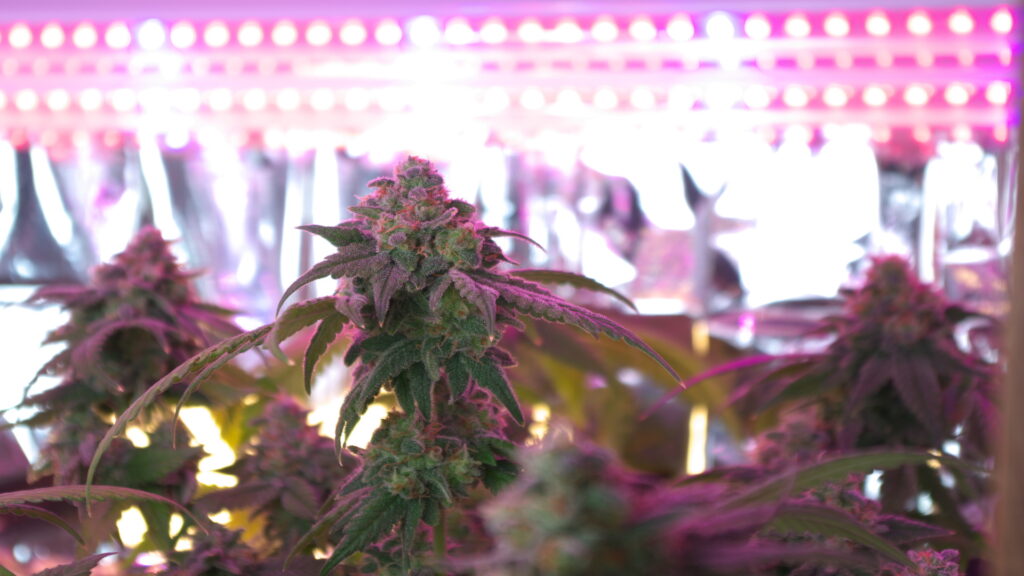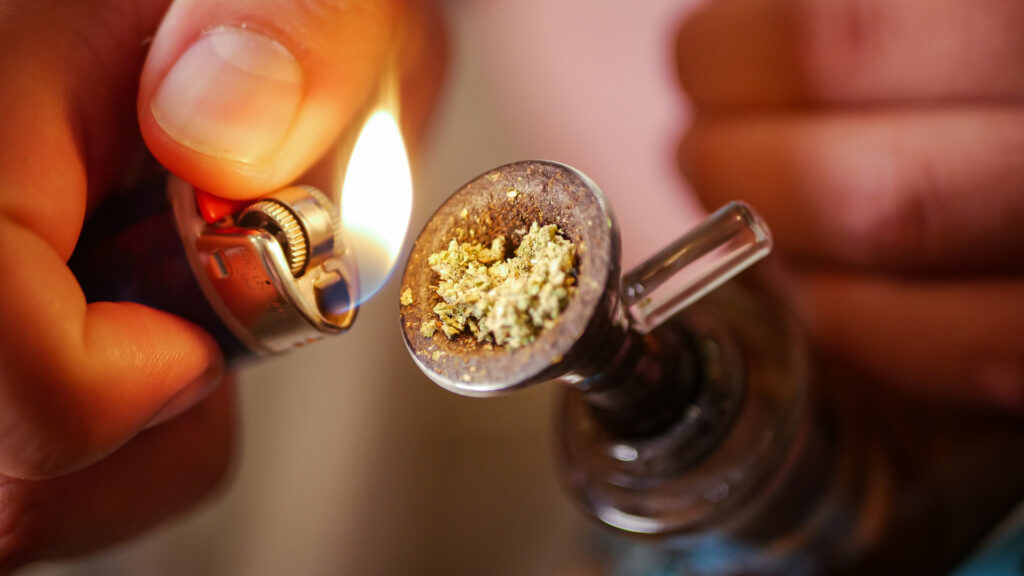
What is THCA and what are the benefits of this cannabinoid?
We know, we know you’ve almost completely mastered the nuances of star cannabinoids THC and CBD and their effects on your high; You know how they work synergistically with other cannabis-derived compounds called terpenes, and you may have looked into the much-controversial entourage effect. Endocannabinoid System? No problem. But now we’re going to throw in a wrench with another compound: THCA.
Cannabis plants produce over 100 different cannabinoids, all of which contribute to how a smoke, vape, food, or topical experience affects you. Although you may not know it, THCA is part of the plant and it’s about time you learned more about it.
What is THCA?
THCA is the acidic form of THC, full name: tetrahydrocannabinolic acid. As a cannabis plant matures and its buds grow, its terpene and cannabinoid levels begin to develop. The first cannabinoid the plant develops is CBGA, also called the “mother of all cannabinoids” because it eventually breaks down and produces primary cannabinoids like THCA and CBDA.
THCA is non-intoxicating when ingested. Chemically, it has an extra molecular carboxyl ring that prevents it from binding to receptors in the brain responsible for the high.
You might be thinking, “What’s the point if it doesn’t get me stoned?” But without THCA, we wouldn’t have THC or the numerous health benefits attributed to it.

When THCA is exposed to heat, like smoking, vaping, dabbing, or cooking, it converts to the intoxicating, beloved cannabinoid THC.
THC vs. THCA
The biggest difference between THCA and THC is that THCA does not produce the intoxicating effects of THC. However, THCA must be heated to create THC, through smoking, vaporizing, dabbing, or cooking for edibles. This conversion changes the molecular structure of THCA by removing a carboxyl ring. This also helps bind THC to CB1 receptors in our body.
Mode of action THCA and THC overlap in some areas. Both have the potential to treat nausea, but THCA shows far more promise in treating inflammation. On the other hand, because THCA is non-intoxicating, some may find it less effective for sleep than activated THC. And while THC is not recommended for seizure disorders, THCA may show promise in treating these conditions.
Is higher THCA or THC better?
All states with a medical cannabis or recreational cannabis program require cannabis brands and operators to test products in a third-party laboratory to ensure their compliance and safety before they can be sold to the public. THCA and THC levels help you determine how strong a product is and what kind of experience you are expecting.
Even though it may seem like you want high THC counts, applying heat directly to THC can burn off some of the cannabinoid content and leave you wanting more.
Related
Cannabis Testing Regulations: A State Guide
Unless you’re looking for edibles, you want high levels of THCA, not necessarily THC; that THCA represents the full potency potential of whatever you are about to smoke, dab, or vape because it converts to THC. If you are looking for flowers, vape cartridges or concentrates, you should look for the THCA number. These are all products that require decarboxylation, also known as heat activation, to produce a high.
Is THCA the same as Delta-8 or Delta-9?
THCA is the acidic form of delta-9-THC, the most prominent intoxicating compound in cannabis.
Delta-8 THC has the same number of atoms as Delta-9, but their arrangement is different, and this arrangement affects its effects. This allowed companies to legally produce Delta-8 products from hemp plants, which by law must contain less than 0.3% Delta-9 THC.
Delta-8 is also derived from THCA, called delta-8 tetrahydrocannabinolic acid, but there is little research to understand how it compares to THCA.
Additionally, both delta-8 and delta-9 THC have some intoxicating effects when consumed. They are not in acidic form like THCA.
What are the effects and benefits of THCA?
Raw cannabis will not produce a high if consumed without first decarbing. However, consuming raw cannabis for its THCA content, such as through juicing or ingesting a THCA-based tincture or edible, offers some of the same benefits as activated THC without the high.
Related
Want to try cannabis juicing? Check out these recipes and guidelines
Some anecdotal reports believe that THCA has some effect, but THCA’s molecular structure prevents it from binding to CB receptors in our body’s endocannabinoid systems.
There isn’t enough data to suggest that THCA doesn’t provide users with pain relief in the same way that THC does, although it still interacts with our receptors in a more peripheral way. Studies have shown that it also has potential neuroprotective properties that may help slow and prevent neurodegenerative diseases like Huntington’s disease. It can also help treat conditions like colitis and IBS. Preliminary results suggest that THCA may help with seizure disorders.
How to use THCA
Many stoners and patients use THCA, which converts to THC, every day by smoking, dabbing, vaping, and ingesting some form of weed to get high or treat their symptoms. In these cases, THCA is more of a channel to reap the benefits of THC. But more and more brands are recognizing the benefits of THCA for use alone.
A popular and accessible way to use THCA is by consuming raw cannabis. You can literally eat it plain, but many prefer to incorporate it into a juicing routine for improved potency and flavor. Many companies also make THCA tinctures and topicals that can be taken as a regimen, like vitamins or a massage product after intense activity.
How to activate THCA

Good news – activating THCA is as simple as grab, light and inhale! Stoners, patients, and occasional users activate their THCA every day when they smoke weed, take dabs, flick a vape pen, and any other form of consumption that involves heat.
You can also decarboxylate cannabis for edibles, tinctures, and topical use. We have a few ways you can do this, but it boils down to placing your cannabis flower in a conventional oven at around 200-245ºF for 30-40 minutes. Anything over 300º will burn off the cannabinoid content, as will overcooking.
Should you smoke THCA or dab?
Yes, but it won’t stay THCA for long. You actually need to heat your cannabis product with THCA in some way or you won’t get a high or other benefits like pain relief, appetite stimulation, and nausea control. On contact with heat, e.g. your lighter, vape pen battery, or quartz dab nail, THCA will immediately start converting to THC. So when you smoke a joint, pack a bowl, hit a bong, rip a bag of Volcano, click your Puffco, etc. etc., you are mostly inhaling THC.
Related
What is decarboxylation and why does your cannabis need it?
Does THCA show up on a drug test?
Yes, both THC and THCA will show positive on a drug test. It’s impossible to completely decarboxylate the full THCA content of the weed you smoke or dabs you ingest into THC, so you’re probably absorbing THCA as well; The same is true for some types of rosin and/or hash-based gummies due to the lack of cannabinoid isolation, although this is less likely given the lab testing required.
Is THCA legal?
The legality of THCA is a sensitive issue. Although THCA itself is not psychoactive, it is still considered part of the cannabis plant and converts to THC when continuously exposed to heat. It can also be broken down into the semi-intoxicating CBN, which is also considered a cannabis-derived substance. Some US outlets have started selling THCA products over the counter, no medical card is required, but this is ultimately dependent on local and state law and should not be taken as a guarantee.
While THCA is not listed as a scheduled substance, possession of an illegal amount of THCA-rich products such as weed or concentrates is still subject to local and state laws. So if you get caught with a pound of weed, arresting officers won’t take into account that raw cannabis is not inherently intoxicating.
Where can I find THCA?
Until recently, few products have harnessed the many benefits of THCA, but many brands are now making THCA-centric products for ingestion and topical use.
While both medicinal and recreational marijuana dispensaries can legally stock THCA-based or fortified products, you’re more likely to find them in a more medicinal-focused store. And remember, you will not burn these.
Amelia Williams
New York-based freelance cannabis journalist Amelia Williams is a graduate of San Francisco State University’s journalism program and a former budtender. Williams has contributed to GreenState, MG Magazine, Culture Magazine and Cannabis Now, Kirkus Reviews and The Bold Italic of the San Francisco Chronicle.
Check out Amelia Williams’ articles
By submitting this form, you are subscribing to Leafly news and promotional emails and agreeing to Leafly’s Terms of Service and Privacy Policy. You can unsubscribe from Leafly email communications at any time.

Post a comment: